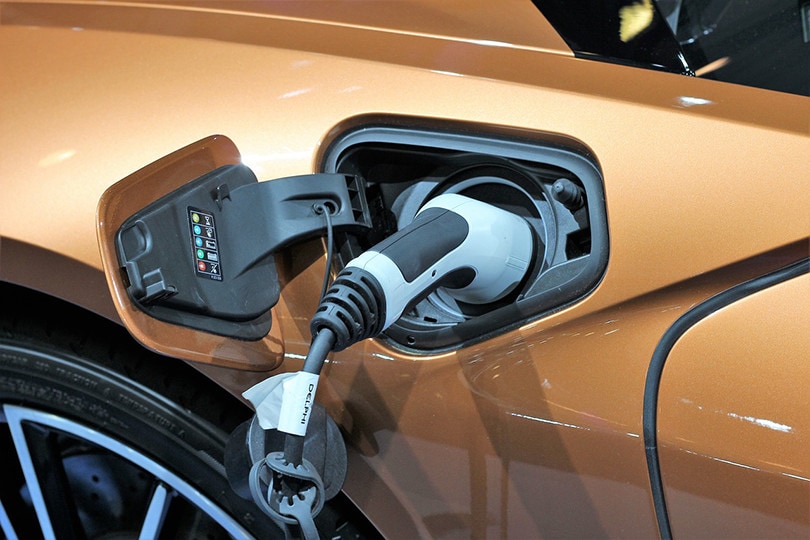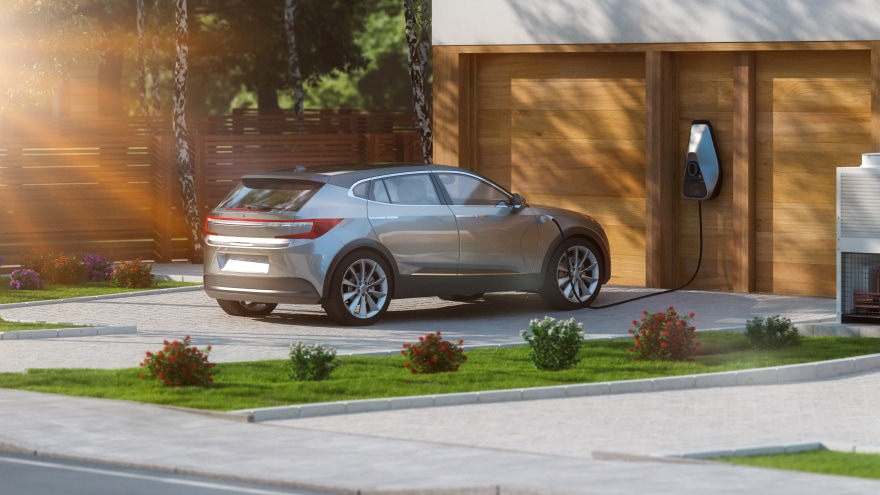Can You Charge an Electric Car at Home? What You Need to Know
-
Ed Malaker
- Last updated:

Electric cars seem to be the way of the future, and most big car names are making at least one electric vehicle for consumers to purchase. A common question for people interested in purchasing an electric car is if they can charge it at home. The short answer is yes, but keep reading as we look at what options are available.
How to Charge Your Electric Car at Home

Level 1 Charging Station
While you have to take a gas-powered vehicle to a gas station to fill it with fuel, you can recharge your car at home while you sleep. If your vehicle is a hybrid or you tend to drive only about 50 miles per day, you should be able to use a standard 120-volt outlet for recharging. The cable comes with the car, and an overnight charge is usually sufficient to get you ready for the next day. Manufacturers call this type a Level 1 charge.
Level 2 Charging Station
If your vehicle is fully electric and you drive more than 50 miles per day, you will likely need a Level 2 charging station to keep your car charged and ready to go. This charging station runs on 240 volts, so it will charge much faster than a Level 1 but will require a special outlet or wall-mounted system to connect to your car. The good news is that many of these vehicles can still accept a Level 1 charge, so you can use a standard outlet if you have plenty of time to wait.
Charging Stations
Most people who need a Level 2 charge will choose a wall-mounted station. There are several brands available, and you can get them from any of the big hardware stores. They are even available online. They are more expensive than installing a 240-volt outlet but provide you with a complete interface that will make it easy to know how much charge the battery has. Many options have an LED display that shows how much power they are consuming, and they use computer intelligence to shut down when charging is complete and to warn you of any problems. Wall-mounted stations can charge your vehicle up to six times faster than an ordinary outlet.
How Much Does It Cost to Install a Charging Station?

The actual cost of installing a charging station in your garage can vary quite a bit, depending on the brand that you choose, its features, and whether you install it or hire someone to do it for you. Most charging stations cost between $300 and $600. We also recommend hiring a certified electrician to install it, which will have a similar cost, depending on where you live.
Does Charging My Car Raise My Electric Bill?
Unfortunately, charging your car each night will increase your electric bill no matter what type of charger you are using. How much it raises the bill will depend on how many miles you drive a day and how large the battery is. Level 2 charging stations will be more expensive to run than Level 1 ones.
Cost Formula
You can make an educated guess about the cost of charging your vehicle by using the following formula:
- Size of your battery in watt-hours (Wh) X the cost of electricity from your supplier per Wh = charge cost
For example, a 1280-Wh battery at $0.014 (average U.S. electric cost per Wh) would cost about $17.92 to charge completely, while a smaller 512-Wh battery would only cost $7.17.
How Long Does a Car Battery Last?
Currently, most electric car batteries are rated to last at least 100,000 miles, which is the average life of most vehicles, so you shouldn’t need to worry about replacing one for many years after buying it. That said, extreme environments and high-intensity driving can affect the lifespan. Allowing the vehicle to run out of charge frequently can also shorten the battery’s lifespan considerably.
- Related Read: How Far Can an Electric Car Go on a Single Charge?
Summary
You can charge your electric car at home, and it’s how many people do it because there are so few charging stations across the United States. Many hybrid vehicles don’t require any special equipment and can charge using a standard outlet and the included cable. The same is true for fully electric vehicles that travel limited miles and people who can wait more than a day for a recharge. Large batteries will require a Level 2 charging station.
Featured Image Credit: Mikes-Photography, Pixabay
Contents
